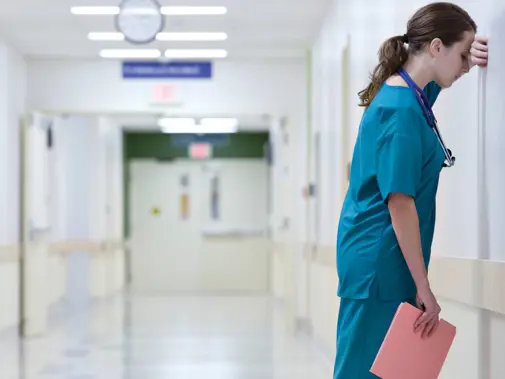Doctors are increasingly moving away from traditional careers and training paths to avoid burnout, according to the GMC, which calls the trend a ‘permanent’ fixture for a profession at high risk of burnout.
The State of Medical Education and Practice 2019 found more and more doctors spend time as locums, practise medicine abroad, or take time out completely between their foundation and specialty training.
Analysis by the GMC shows those who ‘paused’ before starting their specialty training reduced their risk of burnout.
The report also found an increase in the number of junior doctors opting for GP specialist training but that a significant proportion of GPs (45 per cent) worked less than full time and that 36 per cent had reduced their hours in the past year.
‘More doctors doesn’t necessarily mean an overall increase in GP availability,’ the GMC said. ‘Concerns remain that patient demand is outstripping supply.’
'New reality'
GMC chief executive Charlie Massey said doctors were making choices about careers and work-life balance in ‘a new reality which health services cannot ignore’.
‘The challenge our health services are facing is no secret,’ he added. ‘Doctors say they are no longer prepared to stick with the traditional career paths to meet that demand. We are seeing what looks like a permanent shift in the way newer doctors plan their careers.’
The report calls for: greater flexibility in medical training and practice; better resourcing and planning of clinical leadership, and ‘joined-up’ regulation of the UK’s health services.
'Exhausted'
BMA council chair Chaand Nagpaul said the GMC report highlighted that doctors were 'burnt out and exhausted’ by overwhelming demand.
‘It’s clear that the impact of the state of the NHS is being felt across the whole profession – from juniors beginning their careers, to experienced hospital doctors and GPs,’ he added.
'When we already have 10,000 medical vacancies in the NHS, the Government and employers need to do more to retain the existing workforce. This means recognising the flexible working patterns that doctors are increasingly opting for, and as the BMA has consistently called for, a learning rather than a blame culture in the health service.’
The BMA has recently secured extra funding for hospitals to improve rest facilities for junior doctors, removed the significant expense of clinical negligence indemnity for GPs in England and Wales and secured a Government pledge to review pension tax legislation which is landing some senior doctors with huge tax bills.

